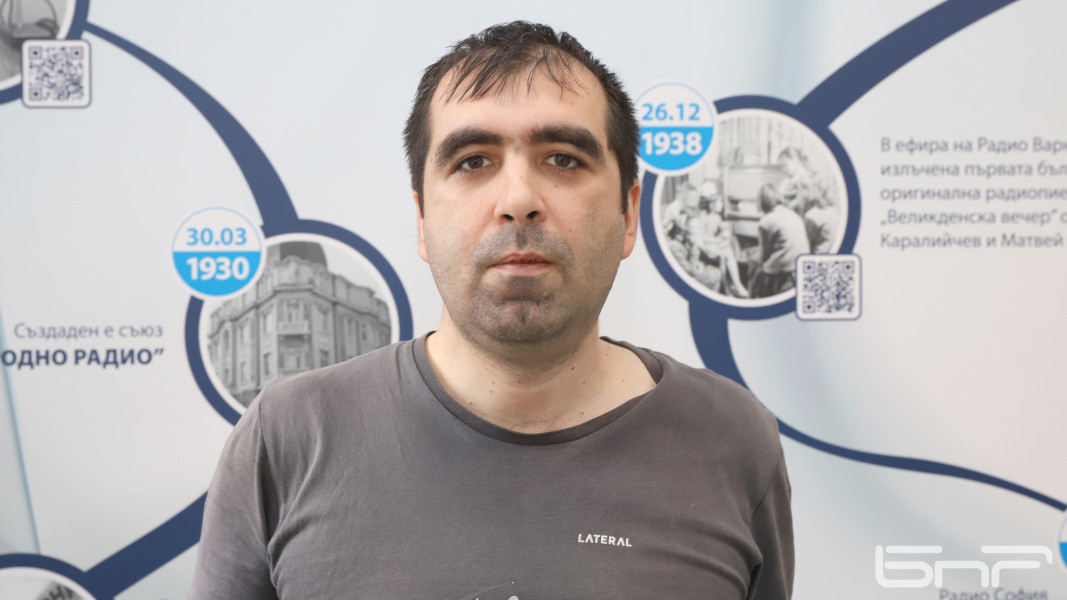The Diplomatic Institute to the Minister of Foreign Affairs presents the results of the applied research project "Romania's Foreign Policy in the Geopolitical Context and Bulgaria". At a time when regional politics is becoming increasingly important, this study makes a valuable contribution by presenting two views of Romania - a key country that remains unknown - said diplomat Valentin Radomirski, Bulgaria's former ambassador to Bucharest, during the presentation.
The publication includes two studies on the subject - by Vladimir Mitev, from the Romanian desk of Radio Bulgaria, and by Dr Aneta Mihailova, assistant professor at the Institute of Balkan Studies with a Museum of Thracology at the Bulgarian Academy of Sciences.
"The Diplomatic Institute has been conducting similar research on Bulgaria's neighbours in recent years, and a year ago the Institute announced an open call for external authors.
We both offer a perspective on Bulgarian-Romanian relations and Romanian foreign policy that will be useful as a key to better understanding what is going on," says Vladimir Mitev.
In his part of the study, he puts forward ideas that "could be useful on a purely human level in communication between Bulgarians and Romanians", and also gives examples of why "diplomacy is difficult, agreements are hard to reach, for example on the Danube bridges".

"Personally, I have the impression that the two countries, the two peoples, despite being together in the EU and NATO, have yet to discover more about each other, to get to know each other better, to understand how to do things together, to build trust. Even the fact that we are constantly compared with the Romanians in various rankings - I think that this does not always lead to openness, but rather to a competition to see who can make some manoeuvres to overtake the other and not be last in these rankings. I am developing an idea that has to do with creating the conditions for more people outside politics and diplomacy, people from cross-border areas, to act and to increase the potential of our bilateral relations. I also see that the contribution of the study is about reciprocity. Usually both Bulgarians and Romanians go to the other country with baggage that can hinder broader communication. I try to encourage us to leave this burden behind and look for a dynamic identity, to develop together with our neighbours, not as competitors, but in dialogue".
At the moment, the two countries have the chance to walk the Schengen path together, but can they find a common approach to convince Austria and the Netherlands of their readiness for the Schengen area?

"According to media reports, the prime ministers of the two countries are coordinating joint actions. In fact, there is a difference in approach - Romania is prepared to seek its rights in the international courts, it is looking for allies among the European institutions to put pressure on Austria. There is a realisation in Romania that the country is losing out by being outside Schengen, including in terms of investment - just one aspect of this is that the lorries of the transport companies often have to wait at the border. Foreign investment is also now going to Hungary, Poland or other countries in the region that are part of Schengen, because our countries are outside the area. This is seen as an injustice. Yes, Bulgaria seems more grounded or modest in its ambitions. Perhaps our diplomatic elites are aware that it is not realistic at this stage to attack this objective head-on. Personally, I am interested in the idea of a Bulgarian-Romanian mini-Schengen, which has been under discussion for some time now. I think it will remain relevant as long as there are signs that we will not be accepted into Schengen this year. The Bulgarian-Romanian mini-Schengen is interesting because it would be a formula allowing the two countries to rely more on the economic and human dynamics between them. To show that we can meet the Schengen standards ourselves and thus put pressure on the West, but not to suffer losses from not being accepted into Schengen".
On 1 November, Bulgaria’s National Awakeners' Day, Sofia’s Gina Kuncheva Square will come alive in a truly remarkable way. From midday, the Oborishte Municipality and the Buditelkite Foundation will unveil the country’s first interactive outdoor museum,..
On the Day of National Awakeners, the Presidential Administration will open its doors to citizens. Today, at 10:30 a.m., a ceremony to raise the national flag of Bulgaria will be held in front of the presidential institution building...
A number of events are being held throughout Bulgaria to mark the Day of National Awakeners. On the day we pay tribute to the Bulgarian writers, educators and fighters for national liberation who have preserved the spiritual values..
The National Assembly has temporarily banned the export and intra-EU delivery of petroleum products, mainly diesel and aviation fuel. The decision was..
The Russian Federation has not demonstrated readiness to achieve peace. The Black Sea is a border zone with war. It must have the..
On Saturday , the lowest temperatures will be between 3 and 8°C; at the Black Sea coast up to 10°C. In Sofia it will be around 3°C...

+359 2 9336 661
